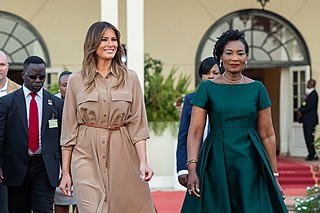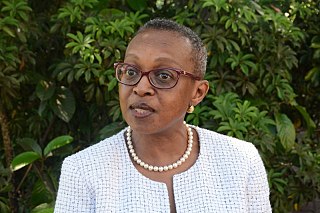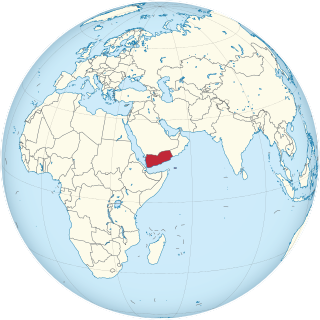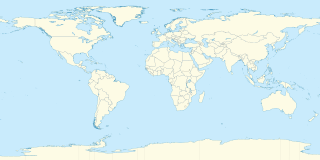Related Research Articles

The International Telecommunication Union is a specialized agency of the United Nations responsible for all matters related to information and communication technologies. It was established in 17 May 1865 as the International Telegraph Union, making it the oldest international organization.

The World Health Organization (WHO) is a specialized agency of the United Nations responsible for international public health. The WHO Constitution states its main objective as "the attainment by all peoples of the highest possible level of health". Headquartered in Geneva, Switzerland, it has six regional offices and 150 field offices worldwide.

Egyptian Maus are a small to medium-sized short-haired cat breed. They are one of the few naturally spotted breeds of domesticated cat. The spots of the Mau occur on only the tips of the hairs of its coat. It is considered a rare breed.

World Health Day is a global health awareness day celebrated every year on 7 April, under the sponsorship of the World Health Organization (WHO), as well as other related organizations.
Maxwell Mkwezalamba is a Malawian politician and economist. He is currently First Alternate Executive Director for Africa Group 1 Constituency, comprising 23 African countries, at the International Monetary Fund in Washington, DC, USA. Before this appointment, he briefly served as Minister of Finance for Malawi under former President Dr. Joyce Banda, before Cabinet was dissolved prior to the May 20, 2014 Tripartite Elections. Between May 2004 and April 2013, he served as Commissioner for Economic Affairs for the African Union in Addis Ababa, Ethiopia. When President Peter Mutharika ascended to power in June 2014, the Finance portfolio was given to Goodall Gondwe.

The transition from a one-party state to a multi-party democracy significantly strengthened the already cordial U.S. relationship with Malawi. Significant numbers of Malawians study in the United States. The United States has an active Peace Corps program, Centers for Disease Control and Prevention, Department of Health and Human Servicess, and an Agency for International Development (USAID) mission in Malawi. Both countries have a common history and English language, as they were part of the British Empire.
The International Vaccine Institute (IVI) is an independent, nonprofit, international organization that was founded on the belief that the health of children in developing countries can be dramatically improved by the use of new and improved vaccines. Working in collaboration with the international scientific community, public health organizations, governments, and industry, IVI is involved in all areas of the vaccine spectrum – from new vaccine design in the laboratory to vaccine development and evaluation in the field to facilitating sustainable introduction of vaccines in countries where they are most needed.
World Suicide Prevention Day (WSPD) is an awareness day observed on 10 September every year, in order to provide worldwide commitment and action to prevent suicides, with various activities around the world since 2003. The International Association for Suicide Prevention (IASP) collaborates with the World Health Organization (WHO) and the World Federation for Mental Health (WFMH) to host World Suicide Prevention Day. In 2011 an estimated 40 countries held awareness events to mark the occasion. According to WHO's Mental Health Atlas released in 2014, no low-income country reported having a national suicide prevention strategy, while less than 10% of lower-middle income countries, and almost a third of upper-middle and high-income countries had.

Sameh El-Saharty is an Egyptian medical doctor and expert in international health, he works as Lead Health Specialist and Program Leader for Human Development at The World Bank in Washington, DC. He is responsible for health, nutrition and population as well as education, social protection and labor markets in the Gulf Cooperation Council countries. El-Saharty joined the Bank in 1998 and was the first Egyptian to work in the health, population, and nutrition sector at the Bank since its establishment. During this period, he was responsible for leading the health policy dialog and health strategy development for client countries as well as managing several programs and projects amounting to more than $3.5 billion in more than 25 countries in three world regions. He also held the position of Adjunct Assistant Professor of International Health at Georgetown University in Washington, D.C.
Healthcare in Malawi and its limited resources are inadequate to fully address factors plaguing the population, including infant mortality and the very high burden of diseases, especially HIV/AIDS, malaria and tuberculosis.

The WHO Regional Office for the Eastern Mediterranean is the regional office of the World Health Organization that serves 22 countries and territories in the Middle East, the North Africa, the Horn of Africa and Central Asia. It is one of the WHO's six regional offices around the world.

Tedros Adhanom Ghebreyesus is an Ethiopian biologist, public health researcher, and official who has been Director-General of the World Health Organization since 2017. Tedros is the first African in the role, and was endorsed by the African Union. He played a role in the response to both the Ebola outbreak and the COVID-19 pandemic.

Matshidiso Rebecca Natalie Moeti is a physician, public health specialist and medical administrator from Botswana who has been serving as Regional Director of the World Health Organization Regional Office for Africa (AFRO), headquartered in Brazzaville, the Republic of the Congo, since 2015.
The United Nations Interagency Task Force on the Prevention and Control of Non-communicable Diseases (UNIATF), hereafter referred to as the Task Force, was established by the United Nations Secretary-General in 2013. Non-communicable diseases (NCDs), also known as chronic diseases, include cardiovascular diseases, cancers, chronic respiratory diseases and diabetes. The role of the Task Force is to bring relevant actors from across the United Nations (UN) system and national governments together to develop whole-of-government, whole-of-society approaches for the prevention and control of NCDs. Following the establishment of the 2030 Agenda for Sustainable Development in 2015, the Task Force's scope of work was expanded to include “NCD related Sustainable Development Goals (SDGs)” such as addressing mental health conditions, violence, injuries, nutrition and environmental issues that contribute to the global burden of NCDs. The Task Force promotes multisectoral action for the prevention and control of NCDs, supports countries to achieve the Sustainable Development Goals (SDGs) and supports countries to move towards Universal Health Coverage (UHC). The work of the Task Force includes implementing the Global Joint Programme to conduct investment cases, coordinating interagency joint programmes and facilitating thematic working groups. The World Health Organization acts as a Secretariat for the Task Force.

An outbreak of cholera began in Yemen in October 2016, and is ongoing as of November 2021. The outbreak peaked in 2017 with over 2000 reported deaths in that year alone. As of November 2021, there have been more than 2.5 million cases reported, and more than 4,000 people have died in the Yemen cholera outbreak, which the United Nations deemed the worst humanitarian crisis in the world at that time. However, the outbreak has substantially decreased by 2021, with a successful vaccination program implemented and only 5,676 suspected cases with two deaths reported between January 1 and March 6 of 2021.

The 2018 Middle East respiratory syndrome outbreak was a set of infections of Middle East respiratory syndrome (MERS-CoV). The cases were most numerous in, and are believed to have originated from, Saudi Arabia.
Zafarullah Mirza is a Pakistani politician who served as a Special Assistant to the Prime Minister for Health. He was appointed by Prime Minister Imran Khan on 23 April 2019.
Karim Abdel Karim Darwish is an Egyptian politician and lawyer. He is a member of the Egyptian House of Representatives and the Executive Partner at International Legal Consultants.
COVID-19 vaccination in Egypt is an ongoing immunisation campaign against severe acute respiratory syndrome coronavirus 2 (SARS-CoV-2), the virus that causes coronavirus disease 2019 (COVID-19), in response to the ongoing pandemic in the country.
Ahmed Al-Mandhari is a physician and public health specialist from Oman. He is currently serving as Regional Director of the World Health Organization's Regional Office for the Eastern Mediterranean (EMRO), where he was appointed in 2018. He graduated with a BSc in Health Sciences and an MD in Medicine from Sultan Qaboos University, after which he studied in the United Kingdom and obtained a PhD from the Liverpool School of Tropical Medicine. He worked at the Sultan Qaboos University and in the government of Oman with roles in quality assurance.
References
- ↑ "WHO's representative Dr Henk Bekedam: 'India does need to step up testing, it is on that path'". The Indian Express. 19 March 2020. Retrieved 25 March 2020.
- 1 2 3 "About WHO India". www.who.int. World Health Organization. Archived from the original on October 21, 2019. Retrieved 25 March 2020.
- 1 2 3 "Dr Henk Bekedam named new WHO representative to India". The Economic Times. 2 December 2015. Retrieved 25 March 2020.
- ↑ Gettleman, Jeffrey; Raj, Suhasini; Singh, Karan Deep; Schultz, Kai (17 March 2020). "India Scrambles to Escape a Coronavirus Crisis. So Far, It's Working". The New York Times. Retrieved 25 March 2020.
- ↑ "WHO EMRO : WHO Representative | WHO representative | Egypt". www.emro.who.int. Retrieved 25 March 2020.
- ↑ Egypt. "WHO Representative". World Health Organization - Regional Office for the Eastern Mediterranean. Retrieved 2021-12-18.